11 Things I Wish I Knew About Chess When I First Started
Every chess master was once a beginner. Even the great ones like Kasparov, Anand, Carlsen and Kramnik knew less about chess at one point of their career than you may know now.
With experience you look back at the ‘old days’ when you first start playing chess and think with irony, I wish I knew that earlier! Why no one told me that before? My results would have been better, much better. This article is for those who just starting out playing chess and want to avoid mistakes many players make.
Advice 1: Take your time
I cannot count a number of times I have observed a novice playing chess and losing just because he or she did not take enough time to think. If you have a habit of making your moves 1.5 seconds after your opponent made his, you need to use the following method to get rid of this bad habit.
After your opponent made a move, look at the board and ask yourself a question ‘why was that move played’ and ‘what can you do to neutralize its threats’? Then, respond with your own move. Unless you playing blitz you should take at least 30 seconds per move, even if response looks completely obvious. During that extra thinking time you may spot something you have missed at first, and that something could save you a game
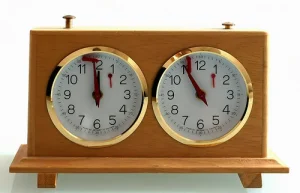
Advice 2: Don’t be intimidated by your opponent’s credentials
This is something that happens very often, on all levels of chess from 1200 to 2700. Let’s assume we are 1400 rated and are about to face 1800 opponent for the next round. A typical 1400 rated player would see the difference in ratings of 400 points and already gets frightened of his opponent. He would set himself a limit to draw the game (without even a possibility of winning), since it’s impossible to beat such a high rated guy. Then, he would exchange a few pieces and passively wait for that magic draw to come, just to lose due to some tactics missed while being intimidated by the opponents rank.
There are multiple methods of dealing with that issue. Some players don’t check their opponent’s rating before the game; some people actually get themselves together and play better chess if they know their opponent is higher rated. Do whatever works for you, and remember, ELO points don’t win the game, good moves do!

Advice 3: Play actively
This is a continuation of the previous point. I have already mentioned that you should not be afraid of your opponent regardless of the rating difference. If you do, the game is lost before it even began. As I have written before in How to Beat a Stronger Opponent at Chess most players mistakenly assume that achieving a simple position on the board is the best way to draw a higher rated opponent. Why is that not the case? Because higher rated players usually play simple (standard) position much better than lower rated players. That’s pretty much the reason why they are higher rated.
So, what do we do in order not to lose the game then? Exactly. We need to complicate the position as much as we can, play actively, attack your opponent and create as many problems for him as possible. This way, even if you lose, you will lose actively fighting and not passively waiting for your opponent to come and checkmate you in the corner.
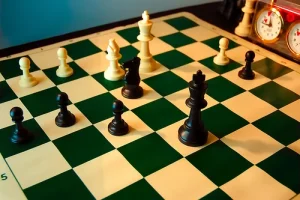
Advice 4: Manage your food intake before the game
Food is quite an individual thing since some players play better chess before they have a meal and some players play better chess afterwards. The general rule of thumb is to avoid big meals before an important game and consume something ‘light’ before the game. If you had too much food your body will concentrate of digesting the food lowering blood stream to the brain, which may affect your chess performance. On the other hand, if you’re hungry, fully concentrating on chess may be difficult. You can read more about chess diet in one of previous my articles.

Advice 5: Warm up before the game
Many players play the first game of the day really badly, blundering and losing quickly. Don’t make their mistake. If you have an important game coming, take 15 minutes of your time and solve a few easy tactical problems just to warm up your ‘chess muscle’. There is no need to pick anything challenging at this point, you’re also building up your confidence. It is especially important if you play chess in the early morning when your mind and body may not be completely awake and ready to be totally productive.
I had trouble myself playing first round games in the mornings since I didn’t turn into a game right away. That cost me many loses and draws in good positions. After I start practicing this little tactical warm-up trick, I noticed my first game of the day results improved a lot.

White to move and win
Advice 6: Don’t resign too early
This is another very common problem that can be seen in the game of novice chess players. Some players resign immediately after they lose a pawn or two playing on 1300 level. In fact, on that level even if you’re a piece down you can still manage to win the game thanks to your opponent’s blunders. Don’t resign unless you absolutely sure the game is lost! If there is a tiny chance of drawing the game, play it on. It’s much better to play on in couple of lost games for a few moves, than to resign a drawn game. You may want to check out my guide how to play chess in a lost position.
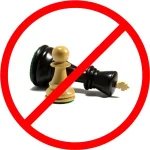
Advice 7: Calculate tactics multiple times
This one is really important, on all levels of chess play. Imagine you find a nice tactical combination with a queen sacrifice, leading to a mate in two. You’re so excited and want to astonish your opponent and to end the game quickly claiming your win by a tactical brilliancy. You play a first couple of move quickly sacrificing your queen and preparing to checkmate your opponent. And then… oh my God, did you really miss something? It’s not a checkmate and the opponent’s King has an escape square? Now all the excitement is gone and you need to play being a queen down. Pretty much the game is over for you.
Lesson to learn from here is simple, if you want to sacrifice something always, always and I mean always double or triple check you tactics!
Advice 8: Keep yourself awake during a game
If you’re sleepy, you will blunder and lose the game. It’s as simple as that. Do whatever it takes to keep yourself awake and focused during the game. That includes diving into a cold swimming pool, running sprints, doing pushups, etc. But seriously, stay awake and you will reduce the possibility of making a blunder. Some people stand up and walk around during the game when their opponent is thinking. Others drink water during the game. Some grandmasters splash cold water on their face in the bathroom during the game to get a little refreshed.

Coffee is another option…
Advice 9: It’s not over until it’s over
Imagine you are up a piece and now you think that the game is pretty much over and you’re just waiting for your opponent to resign. This is the most dangerous time to get overconfident, to make a mistake and to lose a completely won game. This is a time when your opponent may come up with some brave idea to save the game and to attack since he has nothing to lose. Stays focused and look out for threats. Remember, the game is not over until your opponent is checkmated, his time elapsed or he resigns. In most other situations you can still lose the game.
Advice 10: Ignore any disruptions
In order to stay focused on the game and play the best chess you need to learn to ignore any disruptions. That can be a snoring of your opponent, yawning of the spectators, somebody’s ringing phone or a smell of freshly baked pizza, who knows? Whatever happens, if it’s not a life threat, you should be focused on winning the game.
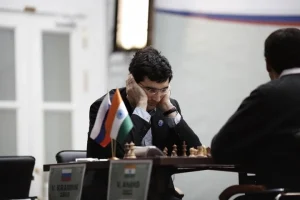
Kramnik ignores all disruptions by blocking his ears
Advice 11: Calm down!
Many chess players get nervous and stressed out during the game of chess. Look at Ivanchuk (YouTube), he is one of the top grandmasters and still gets extremely stressed out during his games, especially in time trouble. It’s difficult to deal with stress during the game, but if you manage to control it your result will improve. Good luck!
Let me know what you think about these 11 advices by commenting below. If you have some other tips to add, don’t feel shy and write it in the comment field as well!
Things that you may find useful:
Credits:
1. Images of chess pieces, clock, chess board, food and coffee are taken from flickr from here, here, here, here, and here under creative commons license
2. Image of Kramnik is taken from ChessPro.ru



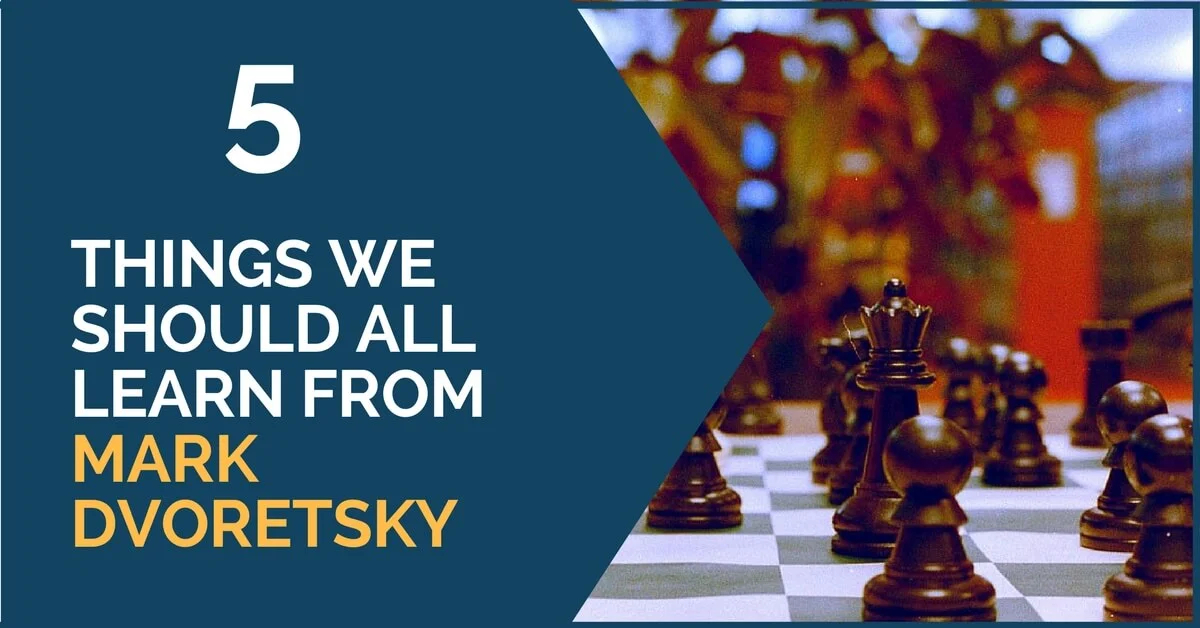
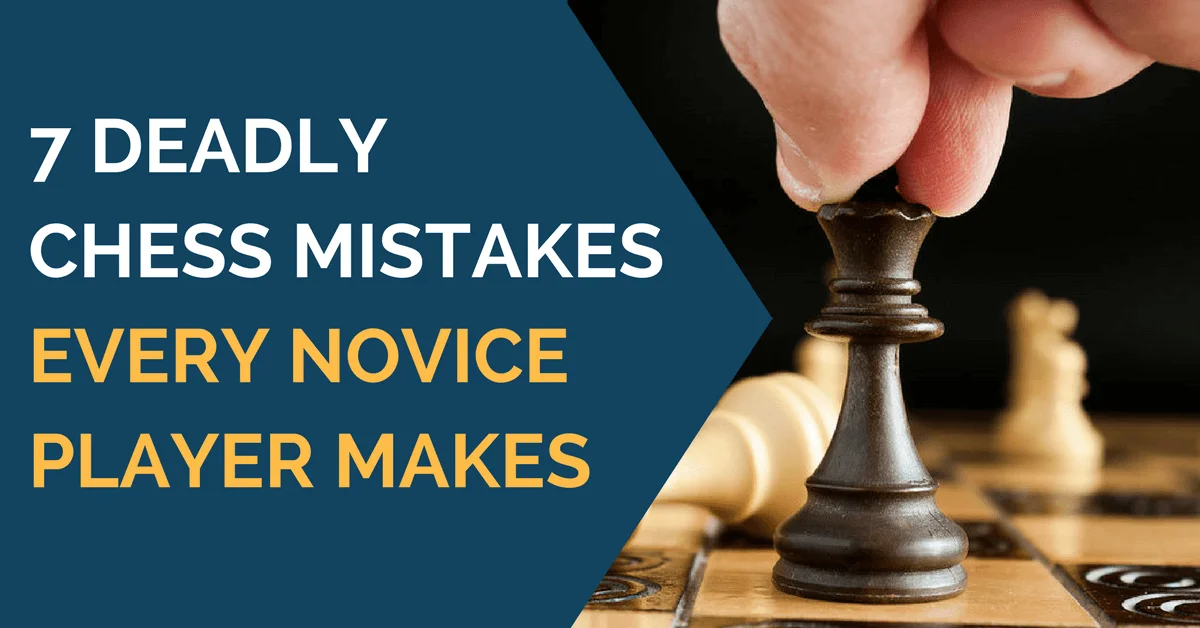
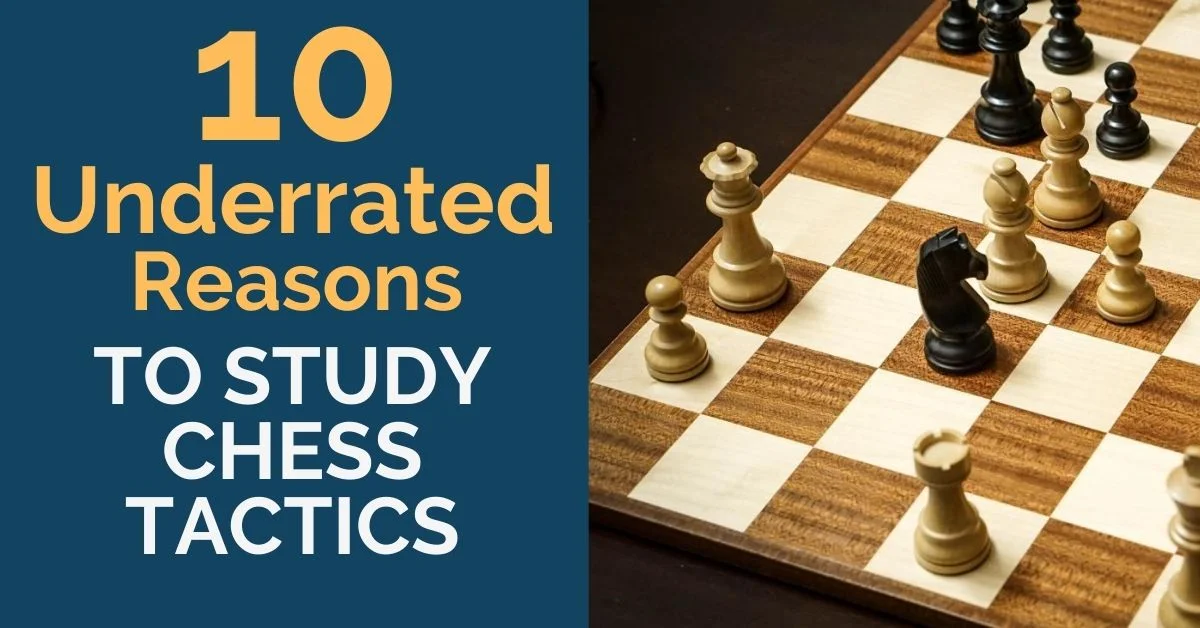




Comments: